Advertising agencies make a lot of advertisements for well-known brands, businesses, and governments. And sometimes they make them for businesses and initiatives we know little about. (Although if that condition remains, they’ve not done very well.) Rarely do they make them about themselves. If they do, only marketing directors see them: there are no big budgets, and no big media spends. As a consequence, many are more phosphorus than campfire – burning quickly and brightly rather than providing a more sustained warmth and welcome.
But a few do have longevity.
In the early 1990s, employee number 16 of a sleepy Miami advertising agency wrote a self-promotional ad that still seduces twenty years later because it gets at the heart of asking a question using the right words. It was made as a press advert. It showed two images side-by-side. In one image was a man hitchhiking by the side of a road holding a cardboard sign at waist height, and written on it in black pen was the name of a US city. It could’ve been any place, and it could’ve been any hitchhiker, on any road, on any day. Above it was one bold-type word: ‘Sales’. The other image was similar: a man hitchhiking by the side of a road holding a cardboard sign at waist height. Written on his sign in black pen was the line ‘Mom’s for Thanksgiving’. Above it was one bold-type word: ‘Marketing’.
This advertisement intended to show that the difference between sales and marketing was a compelling message, to show how seductive they can be, and to show that the agency knew how to create them. It is, they are, and they knew. More precisely, the person who knew was employee number 16: Alex Bogusky. By 1991, at 31 years of age, he was the Creative Director of the agency that wrote the hitchhiker ad, and one that would go on to be nearly a thousand people strong, and win all of the world’s top awards – more than once.
Knowing that different words elicit different responses is obvious to most of us (we all know ‘I love you’ and ‘I hate you’ will create different responses).But understanding how words with subtly different meanings and contexts can create wildly different responses isn’t so obvious.
That’s why you need to ask with the right words.
Mandatory option
In 2008 a group of middle-aged men and women in the USA were tested on their responses to two labels that had the same meaning, but were worded differently.1
The group had a representative mix of political affiliations, and was split in two. The beginning of the experiment required each participant to read a sheet of paper containing an explanation of carbon reduction policies that – if implemented – would raise the price of goods and services.
For one group, part of the explanation said: ‘The goal of a carbon offset, which may or may not be mandatory, is therefore to fund these efforts and ensure that the price of an activity reflects the true cost to society.’ For the other group, part of the explanation said: ‘The goal of a carbon tax, which may or may not be mandatory, is therefore to fund these efforts and ensure that the price of an activity reflects the true cost to society.’
One version said ‘tax’, the other ‘offset’2. This was the crux of the experiment.
After this explanation, both groups were given a sheet containing a list of everyday items like fuel, electricity providers, and computers. Each item was presented with a pair of prices: one price ‘as is’, and one price ‘as would be’ if it included the extra ‘carbon tax’, or ‘offset’ charge (depending on the group). For example, a round trip flight from New York to Los Angeles was presented as $345 base price, and $3523 with the extra carbon charge.4
Fifty per cent of Democrats in the groups elected to pay more for a carbon tax after reading about its benefits, where it would be spent, and seeing the extra item cost comparison. Ten per cent of the Republicans and Independents did the same. This is not news.
What is news, however, is the fact that they were all equally likely to choose the more expensive product or service when it was billed as an ‘offset’. Fifty per cent of the group jumped onboard: ‘when participants considered the offset, there were no differences in choices between political parties, but when they considered the tax, there was a strong decreasing trend.’ It is a fair representation of each political affiliation’s beliefs.
It doesn’t end there.
They had one more test up their sleeve. They added the word ‘mandatory’ to the labels: ‘mandatory carbon tax’; ‘mandatory carbon offset’.
A ‘mandatory carbon offset’ plays fast and loose with the meaning of words: it is logically comparable to a ‘mandatory carbon tax’ in both spirit and execution because they are both unavoidable – in practice they are both a tax. The results of the name difference are surprising.
Everyone liked ‘mandatory carbon offset’.
Democrats, Republicans, and Independents all gave it approximately a five on a seven-point scale, with seven being ‘definitely’ pay it. They were all responding in a way they had never done before to a mandatory payment – similarly, and positively.
This selection volte face is due to the use of language, says Tversky: ‘people choose, in effect, between descriptions of options rather than between the options themselves’.5
Hardisty, Johnson, and Weber argue that labels – the attribute’s frame – determine query order, and query order can either accentuate or attenuate embedded values. In this case, the ‘mandatory offset’ attenuated the natural ‘mandatory tax’ concerns of Republicans.
By way of a different example, someone who values fashion over functionality will naturally focus on the fashion aspects of a coat before querying its functional aspects, but if on initial inspection they are asked about the practicalities of the coat this will accentuate this aspect, effectively reducing the importance of the embedded fashion value. This changes consideration, and can change the final decision: ‘manipulation of query order showed that reversing queries from their natural implicit order to an explicit unnatural order eliminated the endowment effect’.6
The endowment effect states that we value that which we own more highly than that which we don’t (although it may be to do with the fact that we fear the loss of that which we own more than we value having it). We ‘own’ the values by which we navigate the world, so they are rarely shifted, and are the first place we go to inform our decision-making (unless the query order is contrary to our embedded values).
Query order effects were observed in this experiment on purpose, but you can be pretty sure they are unknowingly manipulating the consideration of decisions in the most trivial as well as the most important of decisions.
Money by any other name
Do we name things as we find them? Or do we find them as they’re named? It’s the latter, it seems.
In the UK, the government allocates payments to households inhabited by the elderly to supplement increased heating costs during the winter. It’s called a Winter Fuel Payment, and contains a perfect contradiction: it’s a direct cash transfer but it’s named with a specific purpose.
Why is this a contradiction? Because standard economic theory tells us that cash is fungible – any pound sterling can be substituted for any other, so the naming of cash or cash equivalents should have no effect on spending patterns. But the Institute for Fiscal Studies found robust evidence that the labelling of payments affects how they’re spent. In Households examined, for every £100 given as ‘cash’, £3 will be spent on fuel, but for every £100 given as ‘Winter Fuel Payment’, £41 will be spent on fuel.
So even if a cash transfer is unconditional (you can spend it on anything) their ‘evidence implies that the label of this particular transfer [Winter Fuel Payment] has a critical impact on the behavioural response displayed by those who receive it’. 7
A pound is a pound is a pound – except when it’s not.
But is this a criticism only of the elderly? Criticism of those bamboozled by government and misinterpretations of the law? No. Even the financially astute fall prey to naming quirks.
In 1982, Leroy Gross wrote a book called Manual for Stockbrokers. He examined one of the biggest challenges for them – selling stocks and shares that have lost money. The old Wall Street maxim guides brokers to ‘cut your losers short and let your winners ride’, which is something a rational actor in a rational world would do. But we are not rational actors in a rational world, and we do have a problem: we hang on to losers. Gross characterized this folly as ‘getevenitus’.
He gave enlightened instruction to brokers who manage money for other people to help soothe the ‘getevenitus’ wound: a big challenge is getting a client to close a position (because it crystallizes loss), take the money, and then re-invest in new stock. It requires an ‘act of faith’ and involves lots of painful loss. He advises describing it with a different formulation of words: ‘The two separate transactions (moving out of the loss and moving into the new position) are made to flow together by the magic words “Transfer your assets”.’8 ‘Transferring assets’ is a truthful explanation, as is ‘selling and re-investing’, yet they create wildly different responses.
In both instances – Winter Fuel Payment and stockbrokers – the use of language is appealing to a quirk called ‘mental accounting’.
It states that we give money different values depending on where we store it, with the ‘store’ being our construct. Money in a savings account has more spendy-friction than current cash in our pocket, and even more spendy- friction than money yet to be earned. This is the reason why people will dedicate a larger absolute contribution to their pension from pay-rises anticipated in the future than from wages earned now.
John Godek and Kyle Murray looked at how unstable fuel prices affected private drivers’ mental accounting, and found that price spikes usually evoked a feeling that the overall cost of living had risen. It hadn’t, but this constricted spending decisions in every part of life. They found it was being accounted for in a ‘comprehensive account’, rather than in a narrowly focused ‘topical account’. This could be adjusted by language. They say: ‘our results suggest that price changes should be framed to invoke topical (i.e. within specific consumption decisions) rather than comprehensive (i.e. overall lifestyle and spending) mental accounts’.9
Gary Belsky and Thomas Gilovich (financial journalist and psychology professor, respectively), authors of Why Smart People Make Big Money Mistakes and How to Correct Them, put mental accounting on a par with Prospect Theory – the fundamental concept of behavioural economics: ‘If Richard Thaler’s concept of mental accounting is one of two pillars upon which the whole of behavioural economics rests, then prospect theory is the other.’10
Money, by lots of other names.
Source
1 David J. Hardisty, Eric J. Johnson, and Elke U. Weber, ‘A dirty word or a dirty world? Attribute framing, political affiliation, and query theory’, Psychological Science, 21(1), 2010, 86–92.
2 The money raised, they were told, would all be spent on tactics to lower the amount of carbon in the atmosphere – a simple closed-loop between monies raised and monies spent. This helps to negate the fact that, technically, tax money raised can be spent anywhere, but an offset can only be spent on an offset.
3 Published research contains a $345/$352 ticket price pair. Presentations available online by some authors of the research contain $392.70/$385.00 ticket price pair. Published values used where available.
4 The base price was a real price to keep it consistent with expectations, and the carbon cost was based on averaging existing carbon-offset providers’ rates.
5 A.Tversky,(1996)‘Contrastingrationalandpsychologicalprinciplesofchoice’,in R. J. Zeckhauser, R. K. Keeney, and J. K. Sebenius (eds.), Wise Choices: Decisions, Games and Negotiations. Boston: Harvard Business School Press, 5–21.
6 Hardisty, ‘A dirty word or a dirty world?’, 88.
7 Timothy K. M. Beatty, Laura Blow, Thomas F. Crossley, and Cormac O’Dea,
‘Cash by any other name? Evidence on labelling from the UK Winter Fuel Payment’,
IFS Working Paper, 10/11, May 2011.
8 L.Goss,TheArtofSellingIntangibles.NewYork:NewYorkInstituteofFinance,
1982, 150.
9 J. Godek and K. B. Murray, ‘Effects of spikes in the price of gasoline on behavioral
intentions: a mental accounting explanation’, Journal of Behavioral Decision
Making, first published online 22 March 2011.
10 G. Belsky and T. Gilovich, Why Smart People Make Big Money Mistakes and
How to Correct Them: Lessons from the New Science of Behavioral Economics.
New York: Simon & Schuster, 1999, 52.
For more on this speak with us, or have a look at our capabilities
Also, as co-founders and supporters of the London Behavioural Economics Network, join the Meetup group and Facebook group for more details and events
Related Posts
August 1, 2023
Reading ease is not as easy as all that – comprehension shows the way
It's easy to make text readable, right?…
July 20, 2023
The ‘Hollywood hello’ – and the importance of context when communicating
When communicating we all like to be as…
July 10, 2023
When research turns into promotion – the Mere Measurement effect
...Simply asking about the strength of…




